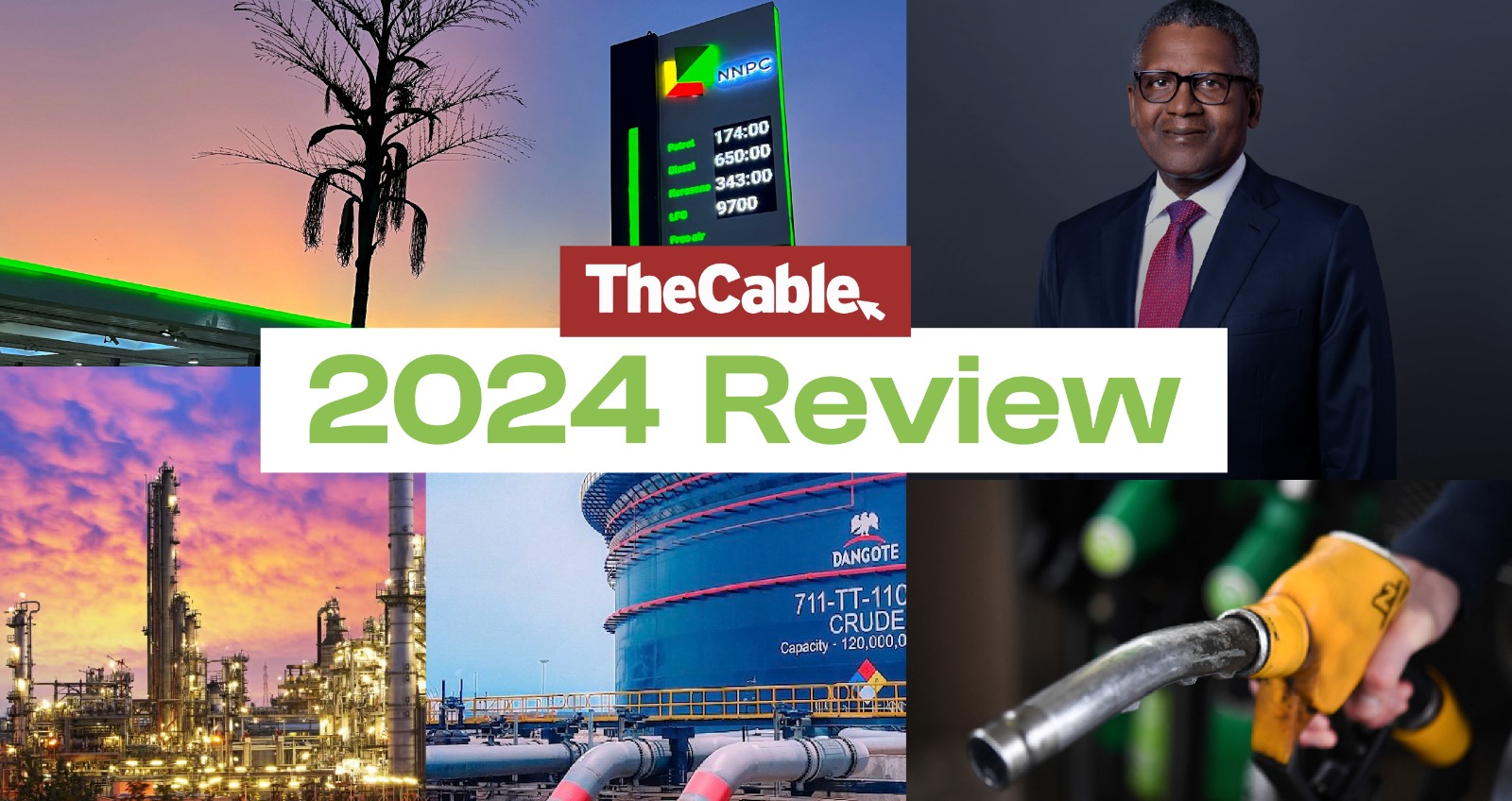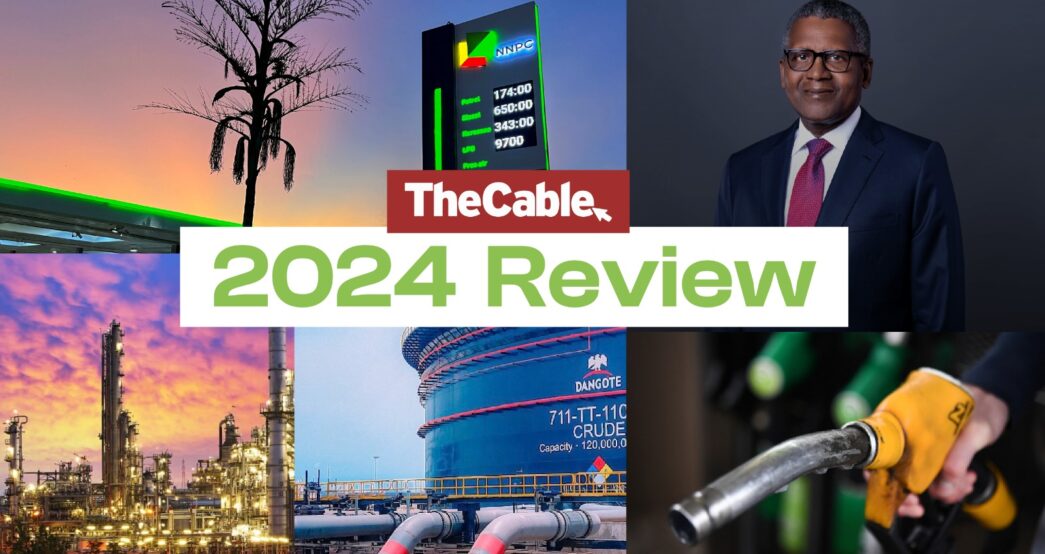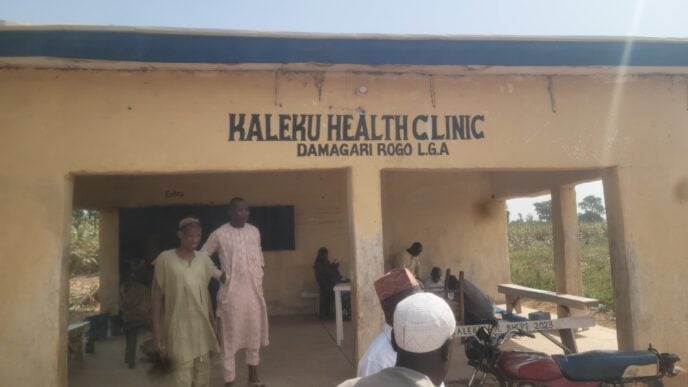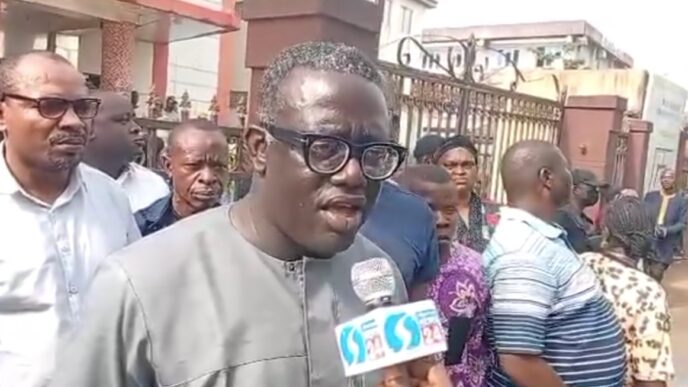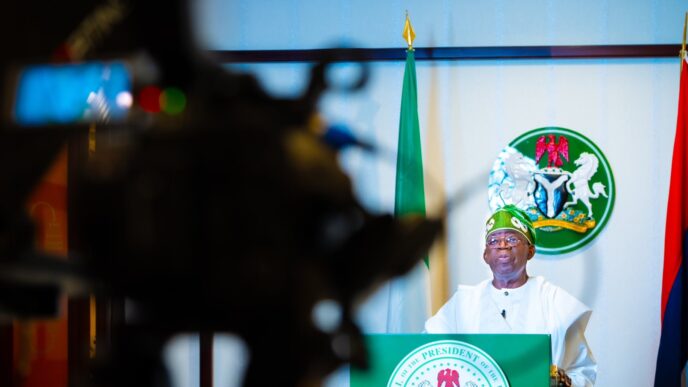As Nigerians reflect on the outgoing year, 2024 may be remembered as the period with the most significant developments in the country’s oil and gas sector.
From the commencement of crude oil refining by the Dangote Petroleum Refinery to ferocious disputes, the year was undoubtedly eventful for the nation’s energy sector.
Here are a few highlights of how the sector fared in the year.
DANGOTE REFINERY
Advertisement
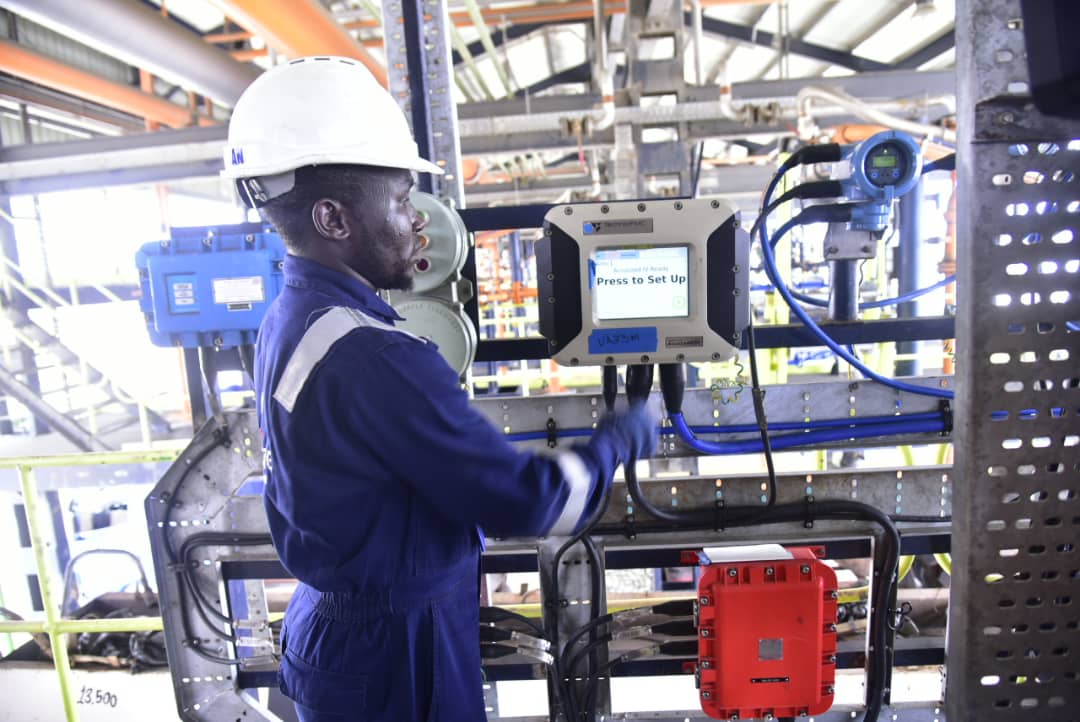
A crucial development in the oil industry in 2024 was the commencement of petroleum products production at the Dangote refinery and the many back-and-forth with regulators, international oil companies (IOCs), and oil marketers.
In January, the refinery commenced production of diesel and aviation fuel — but faced a significant challenge in getting crude oil for processing.
On June 4, Aliko Dangote chairman of the Dangote Industries Limited (DIL), said some IOCs were struggling to supply crude to his refinery.
Advertisement
Speaking on Arise TV on July 15, Gbenga Komolafe, the chief executive officer of the Nigerian Upstream Petroleum Regulatory Commission (NUPRC), described the claim as “erroneous” as the Petroleum Industry Act (PIA) has provisions that guide willing buyer-willing seller transactions.
On July 17, the management of the DIL insisted that IOCs were frustrating its request to purchase crude feedstock for the refinery.
On September 5, amid a prolonged supply dispute, the company officially commenced the production of petrol, reigniting hope that the country could end decades of dependence on imported fuel.
Intervening in the conflict, the federal government, on October 5, announced the commencement of the sale of crude oil and refined petroleum products in naira.
Advertisement
A few weeks later, the Dangote refinery received four cargoes of crude oil from the Nigerian National Petroleum Company (NNPC) Limited under the naira-for-crude sale agreement.
Prior to the agreement, Dangote had received crude oil shipments from the US and Brazil.
With an agreement to take up to 400,000 barrels a day of Nigerian crude paid for in naira, the refinery began supplying petrol to only the NNPC but later spread its tentacles to other oil marketers.
On November 1, the Independent Petroleum Marketers Association of Nigeria (IPMAN) said petrol from the refinery was more expensive compared to buying from other sources, leading to another round of dispute over ex-depot price.
Advertisement
After another series of back-and-forths, the association reached an agreement with the refinery to sell petrol to its members at N940 per litre and N990 per litre when purchased using ships and trucks, respectively.
Meanwhile, the Dangote refinery purchased its first shipment of US oil in November after a three-month break as the firm sought to ramp up production.
Advertisement
The refinery has also commenced the exports of petrol to other African countries.
PORT HARCOURT REFINERY
Advertisement
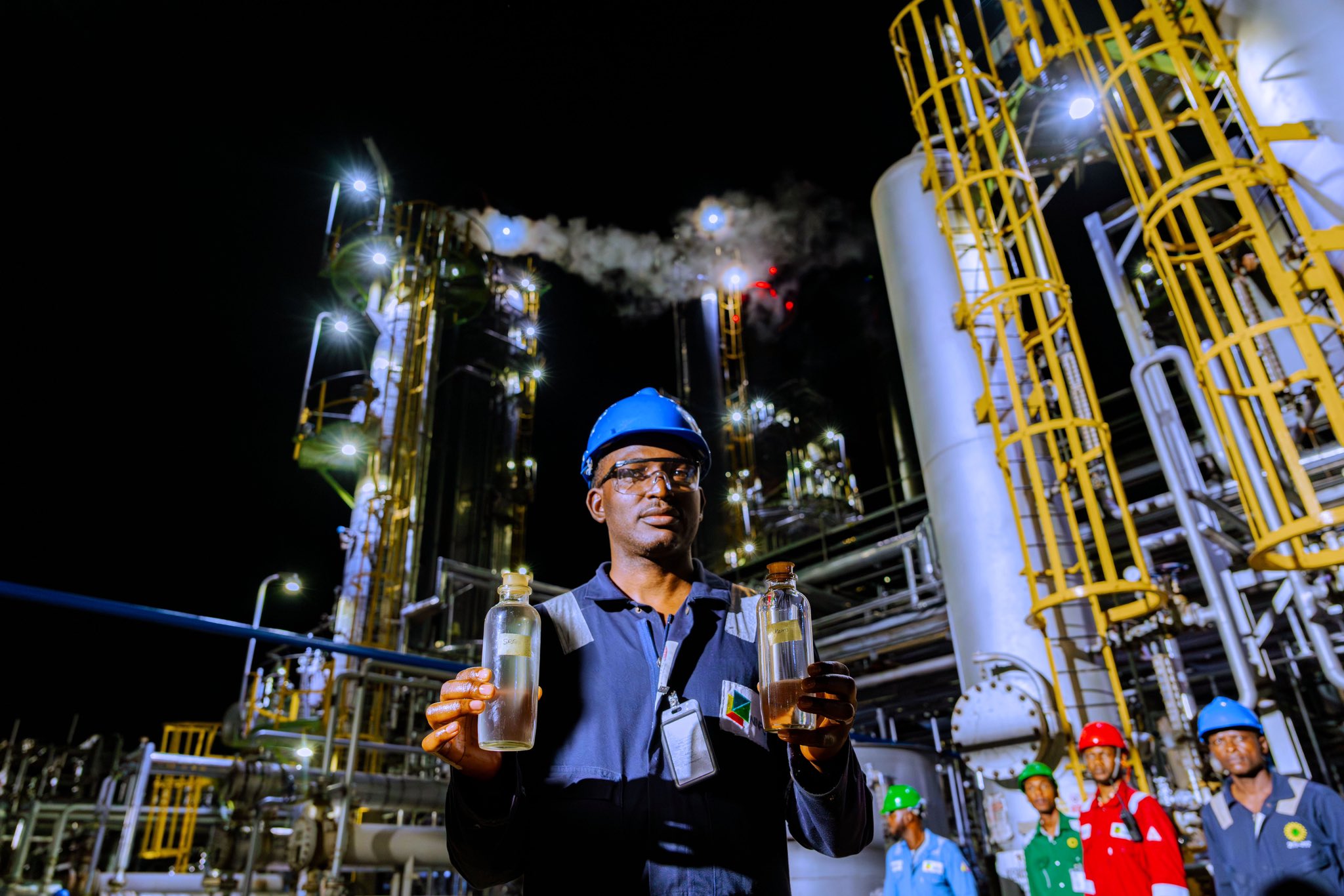
Another breakthrough witnessed in the oil and gas industry in 2024 was the commencement of crude processing by the Port Harcourt refinery after decades of being moribund.
The Port Harcourt Refining Company (PHRC) operates two refineries: the old plant, with a capacity of 60,000 barrels per stream day (bpsd), and a new facility, with 150,000 bpsd — bringing the refinery’s combined crude processing capacity to 210,000 bpsd.
Advertisement
On November 26, the old refinery commenced crude oil processing. The state-owned plant also began petroleum products loading for trucks on the same day.
Operating at a 70 percent installed capacity, the national oil company said the refinery had started producing 900,000 litres of kerosene per day and 1.5 million litres per day of diesel.
The NNPC said 2.1 million litres daily volume of low-pour fuel oil (LPFO) would also be produced at the refinery, noting that additional volumes of liquefied petroleum gas (LPG) would be refined at the plant.
The national oil firm also disclosed that the refinery commenced production of daily outputs of straight-run petrol (naphtha), which is blended into 1.4 million litres of petrol.
Although some Nigerians questioned the “blending” component of the refinery, Mele Kyari, the group chief executive officer (GCEO) of the NNPC, said it is not a crime to blend petroleum products at the old Port Harcourt plant.
“If you don’t blend, you will bring out off-spec products which will destroy your vehicles,” he said.
His statement followed TheCable’s report that the NNPC was considering available options including retrofitting the refinery into a blending plant.
On December 6, the NNPC said the new Port Harcourt refinery was over 90 percent completed.
‘IMPORTS FROM MALTA’
The allegation that some top stakeholders in the oil industry opened blending plants in Malta was another highlight of the sector in the outgoing year.
Petroleum products imports from Malta grabbed the headlines on July 22 when Dangote alleged that some officials of the NNPC, oil traders, and terminals, had opened a blending plant in Malta.
“Some of the terminals, some of the NNPC people and some traders have opened a blending plant somewhere off Malta,” the billionaire had said.
Dangote’s ‘revelation’ came amid a heated dispute with industry regulators over crude supply to his refinery.
In response to the allegation, Kyari said he does not own a blending plant in the aforementioned country.
TheCable reported that one of the biggest petrol importers via Malta is Abdulkabir Aliu, a member of the presidential economic coordination council (PECC) and founder of Matrix Energy.
Also, the report said in July alone, over 200,000 tonnes of “lower quality African Spec” petrol from Malta were discharged into the Matrix jetty in Warri, Delta state, according to an insider who shared confidential documents with the publication.
Denying misconduct, Matrix said its imported products meet the approved specifications and no customer has rejected them.
In 2023, Nigeria’s petroleum importation from Malta increased significantly to $2.08 billion in 2023.
APPROVALS OF DIVESTMENT DEALS
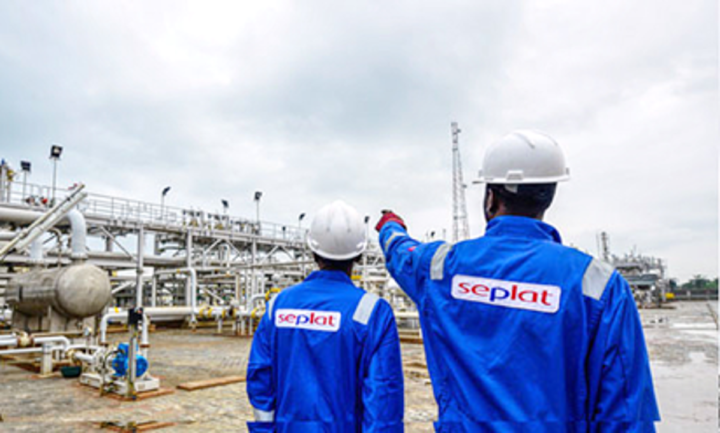
In 2024, the federal government approved a chain of divestment deals that had been pending for as long as two years, amid efforts by IOCs to sell their Nigerian assets.
Seplat Energy Plc, in February 2021, agreed to acquire the entire share capital of Mobil Producing Nigeria Unlimited (MPNU) from ExxonMobil for $1.3 billion.
In September 2023, Oando Plc also agreed to acquire a 100 percent stake in Eni’s subsidiary — the Nigerian Agip Oil Company Limited (NAOC Ltd).
One month later, Equinor said it agreed to sell its Nigerian business, including the company’s stake in the Agbami oil field, to Chappal Energies.
In January, Shell Plc said it had decided to sell its Nigerian onshore oil assets to a consortium of local companies for over $1.3 billion.
The federal government, on October 21, approved the divestment deals.
According to the NUPRC CEO, Eni’s divestment of NAOC to Oando, TotalEnergies-Telema Energies deal, and ExxonMobil’s sale of MPNU to Seplat Energy, received ministerial consent.
The divestment of Equinor Nigeria Energy Company Limited to Project Odinmin Investments Limited was also approved by the federal government.
Although Shell’s sale to Renaissance Africa Energy Company Limited failed the regulatory test, the deal was later approved on December 18.
Earlier on December 8, Chappal Energies completed the acquisition of Equinor Nigeria Energy Company, a subsidiary of Norway-based Equinor ASA.
Similarly, a few days later, Seplat Energy said it had completed the $800 million acquisition of MPNU from ExxonMobil.
On August 22, Oando also announced it had successfully completed the acquisition of a 100 percent shareholding in NAOC from Eni.
MAJOR FINAL INVESTMENT DECISIONS

Aside from successful divestments in 2024, the oil and gas sector also witnessed major final investment decisions.
In April, the federal government launched new fiscal incentives to revitalise the oil and gas industry’s contribution to the Nigerian economy, targeting $10 billion in new investments in 18 months.
Two months later, the Ubeta oilfield achieved an FID through a partnership between TotalEnergies and the NNPC — with the signing ceremony of the $550 million investment taking place in June.
On October 2, the government also introduced concessions aimed at revitalising the oil and gas industry to ensure a boost in Nigeria’s upstream and downstream sectors.
According to Wale Edun, minister of finance and coordinating minister of the economy, such incentives in the oil and gas sector attracted $3 billion in investments.
In December, Shell and its partners on the Bonga north deepwater project, worth $5 billion, announced an FID on the project.
Add a comment
